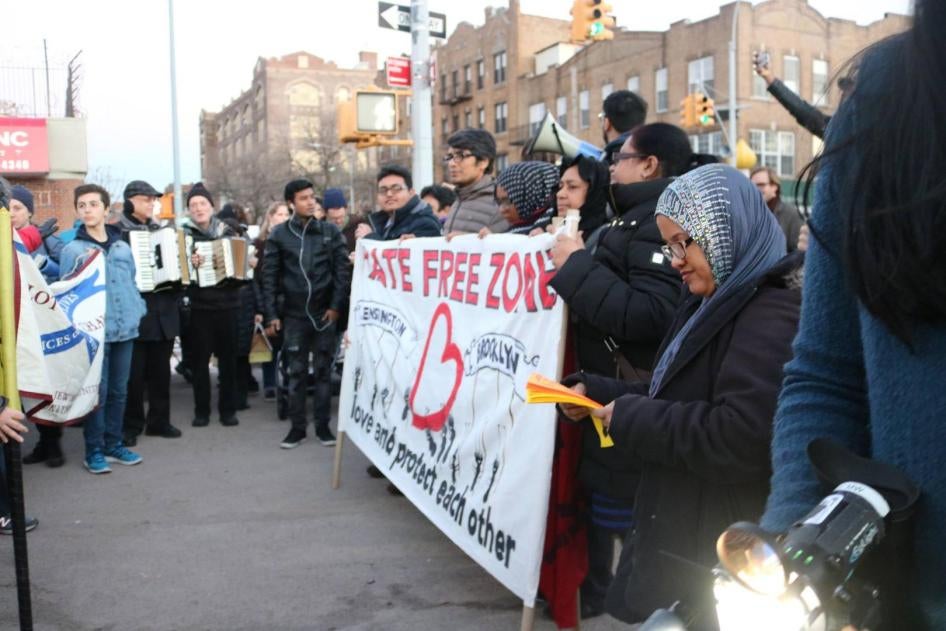“I told my family: I don’t want you to get deported because of me. It’s because I have DACA that the government has our information.”
Nafisa is one of approximately 750,000 people who have benefitted from DACA, Deferred Action for Childhood Arrivals, a program created by the Obama administration for some undocumented immigrants who came to the US as children. DACA has enabled individuals to work legally and pursue an education for a two-year period, but to do so, they had to register with the federal government.
As she spoke at a meeting of Desis Rising Up and Moving (DRUM), a community-based social justice organization of working-class South Asian immigrants in New York City, Nafisa expressed the fears of many that the information submitted for DACA might now be used to
help deport her and her undocumented parents.
The position of the new administration is ambiguous at best. During his campaign, Trump promised to
cancel DACA, but more recently, he stated that DACA participants shouldn’t be “very worried.” At this point, the future for DACA recipients remains uncertain.
“A member came to me for help renewing their DACA,” said Kazi Fouzia, a community organizer at DRUM. “I told them that we don’t know, but it may be cancelled. We have to tell our members the truth, but we don’t want to scare them.”
Since Trump
signed two executive actions on immigration and border policy, Kazi has been receiving an endless stream of calls and visits from members attempting to grasp how these policies will affect their ability to remain in this country and their current vulnerability to deportation. Although they don’t directly affect DACA, they are clearly designed to increase detentions and deportations. As reports of ICE raids – both
real and
fake – spread through immigrant communities, these fears have only increased. Just yesterday, Daniel Ramirez Medina, a DACA recipient in Seattle
was taken into custody by ICE, a spokesman for which said he admitted a gang affiliation. Mr. Ramirez responded that he was pressured to falsely admit the affiliation, which he “unequivocally denies.”
Members have confided to Kazi that, “they are so concerned that they watch the news every second of every day. They’re not even eating properly because they’re so stressed. It’s not healthy behavior.”
After the meeting, Raihana, a member of DRUM, asked me if I knew anyone who was looking to hire a caretaker and explained, “I'm undocumented. Right now, my son’s income supports the entire family. But once his DACA expires, who knows what will happen? I need to find a job.”
Fahd Ahmed, Executive Director of DRUM, led the chant that would conclude the meeting: “When I say ‘Here to stay!’ you say ‘Here to fight!’” A room full of members, staff, interpreters, hailing from at least four countries, speaking three different languages, shouted over the sounds of the nearby 7 train: “Here to stay! Here to fight!”










